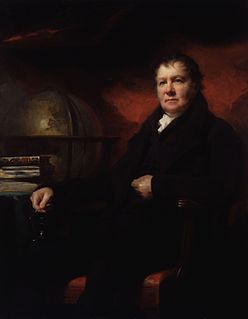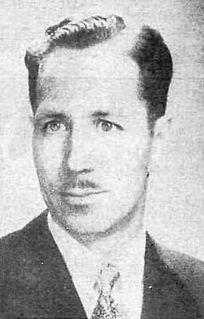A Quote by Stephen Hawking
There are grounds for cautious optimism that we may now be near the end ofthe search for the ultimate laws of nature.
Related Quotes
Artificial intelligence would be the ultimate version of Google. The ultimate search engine that would understand everything on the Web. It would understand exactly what you wanted, and it would give you the right thing. We're nowhere near doing that now. However, we can get incrementally closer to that, and that is basically what we work on.
The Author of nature has not given laws to the universe, which, like the institutions of men, carry in themselves the elements of their own destruction; he has not permitted in his works any symptom of infancy or of old age, or any sign by which we may estimate either their future or their past duration. He may put an end, as he no doubt gave a beginning, to the present system at some determinate period of time; but we may rest assured, that this great catastrophe will not be brought about by the laws now existing, and that it is not indicated by any thing which we perceive.
We often say, and you have heard the expression as it has already been referred to in this conference, that "as man now is, God once was, and as God now is, man may become." The only way man may become as God now is, is through fulfilling the laws of celestial marriage and the laws of the gospel, as I have just read to you the word of the Lord from the D&C. Can we afford to overlook such opportunities for exaltation? Temple marriage is not just another form of church wedding; it is a divine covenant with the Lord that if we are faithful to the end, we may become as God now is.
While, on the one hand, the end of scientific investigation is the discovery of laws, on the other, science will have reached its highest goal when it shall have reduced ultimate laws to one or two, the necessity of which lies outside the sphere of our cognition. These ultimate laws-in the domain of physical science at least-will be the dynamical laws of the relations of matter to number, space, and time. The ultimate data will be number, matter, space, and time themselves. When these relations shall be known, all physical phenomena will be a branch of pure mathematics.
For the religious, passivism [i.e., objects are obedient to the laws of nature] provides a clear role of God as the author of the laws of nature. If the laws of nature are God's commands for an essentially passive world ..., God also has the power to suspend the laws of nature, and so perform miracles.
We may conclude, therefore, that, in order to establish laws for the regulation of property, we must be acquainted with the nature and situation of man; must reject appearances, which may be false, though specious; and must search for those rules, which are, on the whole, most useful and beneficial.
The true religion, it is said, is service to mankind; but this service seems to take the form of securing for him an unconditional victory over nature. Now this attitude is impious, for, as has been noted, it violates the belief that creation or nature is fundamentally good, that the ultimate reason for its laws is a mystery, and that acts of defiance such as are daily celebrated by the newspapers are subversive of cosmos.
Man is made for science; he reasons from effects to causes, and from causes to effects; but he does not always reason without error. In reasoning, therefore, from appearances which are particular, care must be taken how we generalize; we should be cautious not to attribute to nature, laws which may perhaps be only of our own invention.
Children should be encouraged to search out in nature the objects that illustrate Bible teachings, and to trace in the Bible the similitudes drawn from nature. They should search out, both in nature and in Holy Writ, every object representing Christ, and those also that He employed in illustrating truth. Thus may they learn to see Him in tree and vine, in lily and rose, in sun and star. They may learn to hear His voice in the song of birds, in the sighing of the trees, in the rolling thunder, and in the music of the sea. And every object in nature will repeat to them His precious lessons.
Is the world ruled by strict laws or not? This question I regard as metaphysical. The laws we find are always hypotheses; which means that they may always be superseded, and that they may possibly be deduced from probability estimates. Yet denying causality would be the same as attempting to persuade the theorist to give up his search; and that such an attempt cannot be backed by anything like a proof.
The laws of Nature take precedence of all human laws. The purpose of all human laws is one - to defeat the laws of Nature. This is the case among all the nations, both civilized and savage. It is a grotesquerie, but when the human race is not grotesque it is because it is asleep and losing its opportunity.




































